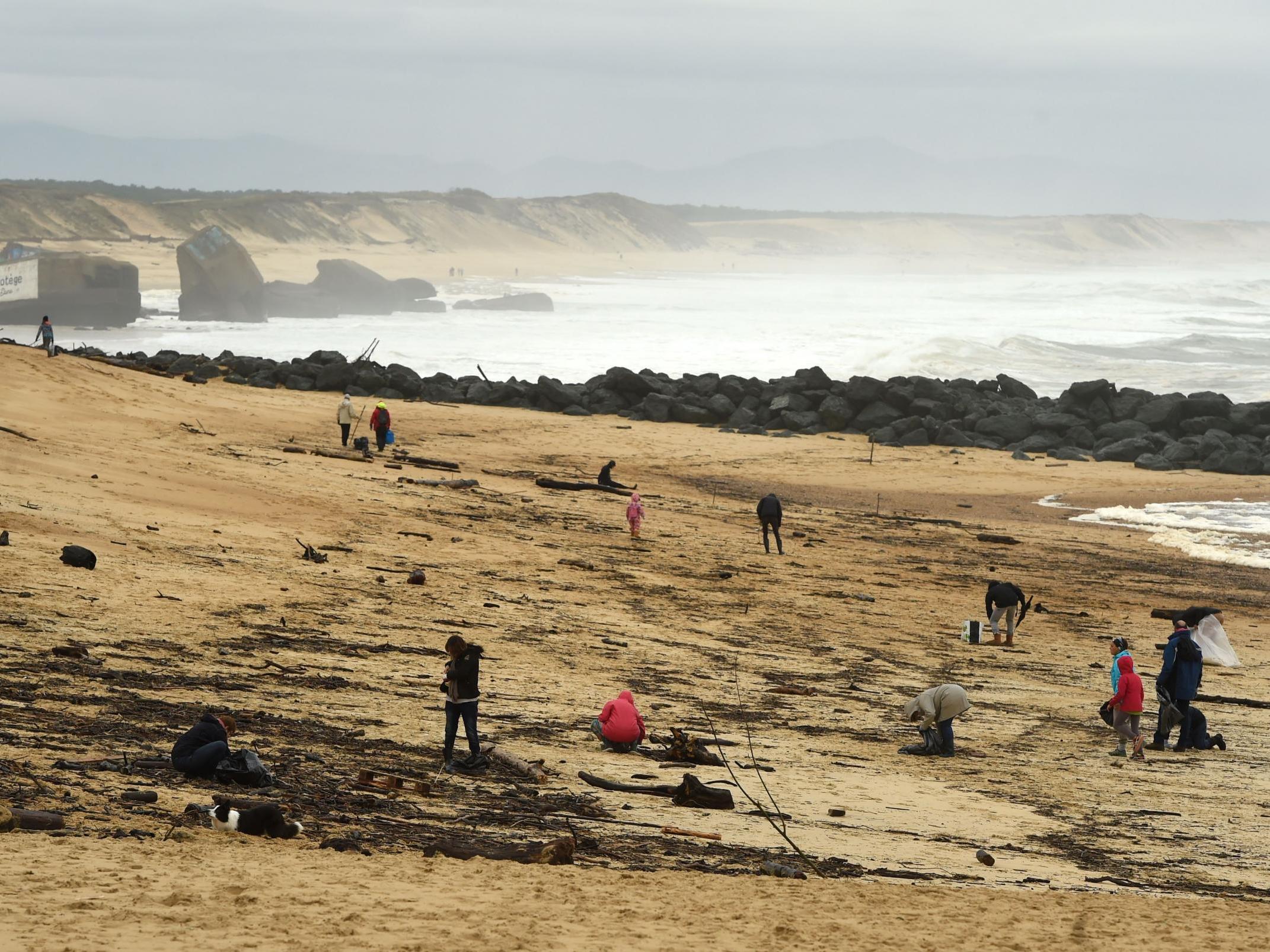Beaches in France closed after large packages of cocaine washing up attract fortune hunters
Investigators unsure of origins of drug, which is extremely dangerous at 83 per cent purity

Your support helps us to tell the story
From reproductive rights to climate change to Big Tech, The Independent is on the ground when the story is developing. Whether it's investigating the financials of Elon Musk's pro-Trump PAC or producing our latest documentary, 'The A Word', which shines a light on the American women fighting for reproductive rights, we know how important it is to parse out the facts from the messaging.
At such a critical moment in US history, we need reporters on the ground. Your donation allows us to keep sending journalists to speak to both sides of the story.
The Independent is trusted by Americans across the entire political spectrum. And unlike many other quality news outlets, we choose not to lock Americans out of our reporting and analysis with paywalls. We believe quality journalism should be available to everyone, paid for by those who can afford it.
Your support makes all the difference.Beaches in southwest France have been shut down as packages of cocaine continue to mysteriously wash ashore, with authorities puzzled as to where the drugs are coming from.
More than 1000kg of cocaine has so far washed up on the Atlantic coast since mid-October. The packages have appeared on hundreds of miles of coastline, stretching from Camaret-sur-Mer on the western tip of Brittany to Biarritz in the south.
Customs officers are also finding some of the packages at sea, according to Philippe Astruc, a public prosecutor in Rennes.
“It’s the same cargo,” Astruc told AFP. “We’re going to still be finding them for a while.
“Each tide brings in a batch. They are still fairly significant with around 100 kilos arriving each day all along the coast.”
The cocaine is extremely pure at 83 percent, say officials, and thought to be worth millions of euros in street value.
“It’s a very pure product that must not be consumed in this form because there is a very high risk of overdose,” Astruc said.
“We fear that people will try and find these products and use them – which is incredibly dangerous – and that traffickers or would-be traffickers will say ‘we can make some money here’.”
People who find the packages have been warned not to touch them but to inform the local authorities.
More than a dozen beaches in the southwest have so far been closed, with police stopping walkers for searches and also checking cars leaving nearby parking lots.
On Monday, a 17-year-old was caught with five kilos of cocaine at Lacanau, a closed-off surfing beach near Bordeaux.
French investigators are working with European authorities as well as the US Drug Enforcement Agency to determine where the packages have come from.
Astruc suggested earlier this week the drugs may have originated from South America, having been thrown into the sea off a storm-hit ship.
Packages of cocaine with similar markings to the ones recovered in France were also found on beaches in Florida in the aftermath of Hurricane Dorian in September, according to the French newspaper Sud-Ouest.
Join our commenting forum
Join thought-provoking conversations, follow other Independent readers and see their replies
Comments